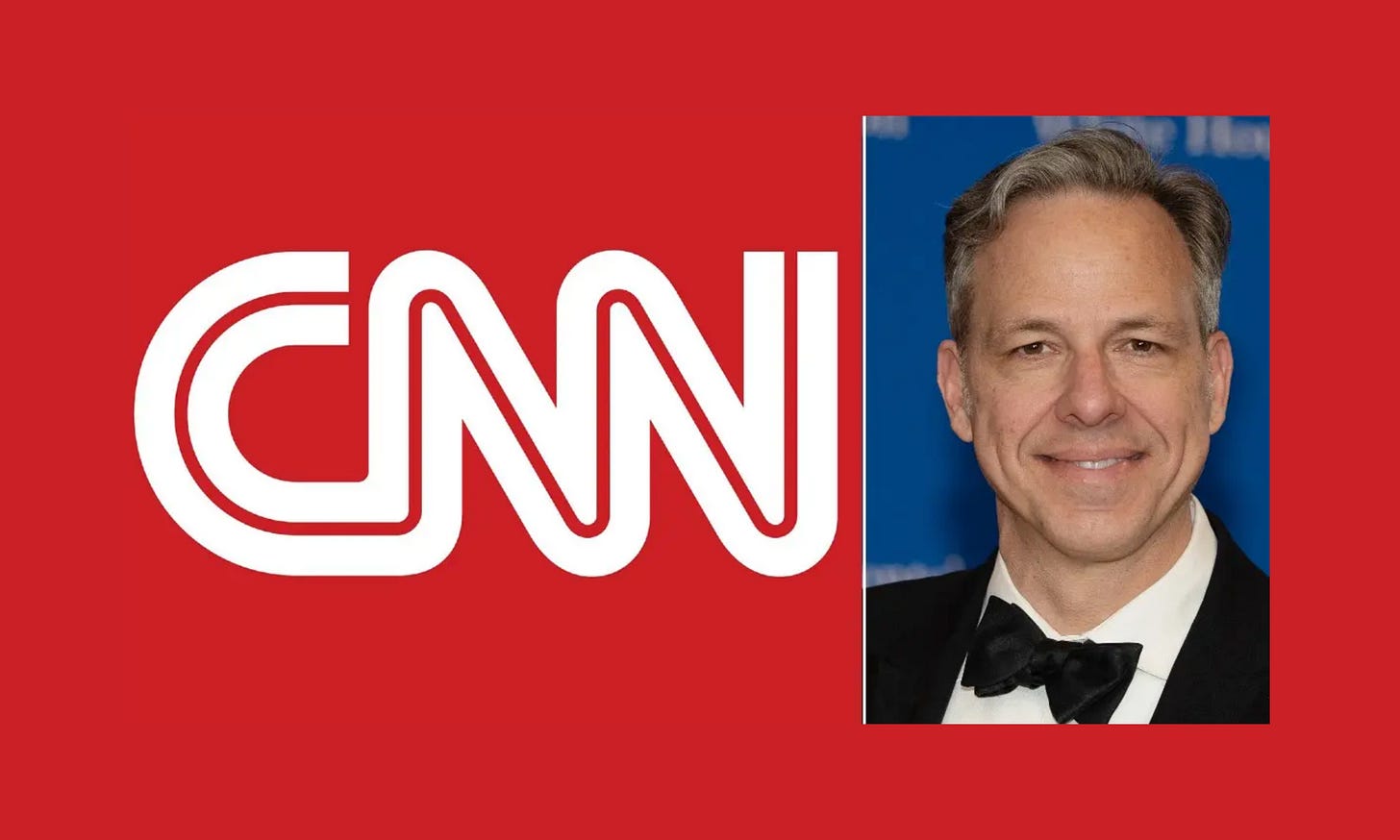How the CNN 'Sausage Gets Made'
When the media is the one who requires a watchdog to hold it accountable
When you, your name and reputation become a target of an attack, whether it comes from an individual or a group, they are not often going to make public their “means” to an end for the “takedown.”
Maybe (who knows) that is one reason ABC News settled its defamation case with petitioner, Donald Trump in a defamation case. Some legal analysts have suggested the media outlet was afraid of what discovery might reveal about ABC News.
Now, how about CNN’s reported behavior?
Charles Benaiah wrote about it in his article — The CNN defamation case revealed how the journalism sausage is made — which was published at The Desk and at MSN.com.
If you haven’t yet seen the reports on this story, it may (or may not) surprise you.
Benaiah credits Nicholas Fondacaro with reporting on the trial on X (formerly Twitter).
Some Important Lowlights: “Believe it or not (in Jack Palance’s voice)”
Jake Tapper and his producers, the jury was told, wanted a story that “targeted” former U.S. Navy Seal Zachary Young because he was a “sh—bag” with “punch-able face.”
That particular CNN team decided they were, “gonna nail this Zachary Young motherf—er” for illegally and financially exploiting people to transport them out of Afghanistan after the U.S. withdrawal.
The problem is that CNN ignored sources that denied those claims and took it a step further by presenting a false video of Young not answering his phone. “They used lesser ingredients to make the sausage,” Benaiah critiqued.
During the trial, Tapper said the work was not about television ratings, it’s about the news. Yet, another problem (are you noticing the pattern?): the story was “full of holes like Swiss cheese,” CNN’s breaking news editor, Megan Trimble, said.
Wait, there’s more. The reporting was, “80 percent emotion, 20 percent obscured fact,” Thomas Lumley, CNN senior national security editor, said.
Tapper and his team reportedly ignored the network’s editors and fact-checkers and ran the story anyway. Remember the outcry from the media and analysts regarding Meta’s decision to cease using fact-checkers?)

So, Now What?
CNN was ordered to pay Young $4 million for economic damages to his business and $1 million for emotional damage.
Honestly, that seems like a relatively light amount when you consider that Young’s attorney and legal team need to be paid a princely sum and the fact that his business and personal reputation will still be doubted and rejected by some people, costing him professionally and personally.
Benaiah came to a conclusion as an observer of this trial and its findings.
“It wasn’t about the fraud, or the money,” he wrote. “It was about protecting the (certain media practitioners) recipe (for sausage making stories and the news).”
This is another story of media misconduct, jumping to conclusions and weak-to-absent internal governance by a media brand and outlet. That may not be the norm in journalism but this scandalous process is happening, when it should never occur.
A critical point: people who become targets of the media get badly injured by reporters and editors (and news directors) rush to destroy and their bias, ego and a lack of curiosity, missing humility and rejected professional ethics are transpiring.
It shows poor character and leadership that is incompetent or corrupt.
Media loves its watchdog responsibilities and is overexcited to tout it publicly. What it doesn’t love is being responsible 100 percent of the time and feeling the burning fire spotlight of scrutiny on itself.
It prefers to dismiss claims, rationalize misconduct and learning little.
That approach hurts the industry as a whole and creates more uncertainty or distrust among consumers of media. Its reputation keeps taking hits in its relationship with the public. Surveys each year keep telling the media to be more professional and objective, yet as a collective, the public isn’t seeing it happening.
The media considers losing — rarely, because of special protections — in court to merely to be the cost of doing business. That’s not what you expect 0f and need in a user-provider relationship.
This newsletter — Reputation Intelligence — is written by Michael Toebe, and is a product of Reputation Intelligence - Reputation Quality, a firm which helps individuals and organizations assure a greater peace of mind, provide stress relief through reliable decision analysis, consulting, advisory and communications.
Professional Analysis and Opinion — Consulting — Advisory
Reputation Communications — Defamation Response — Speaking Engagements






